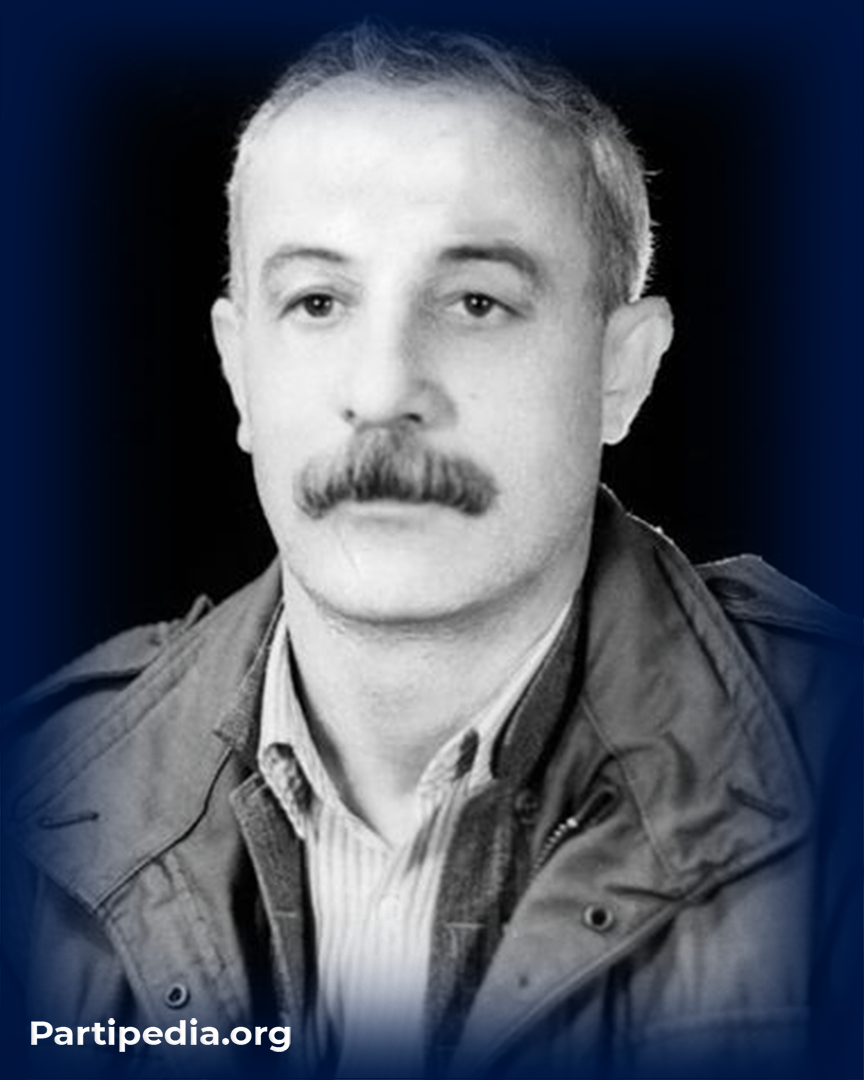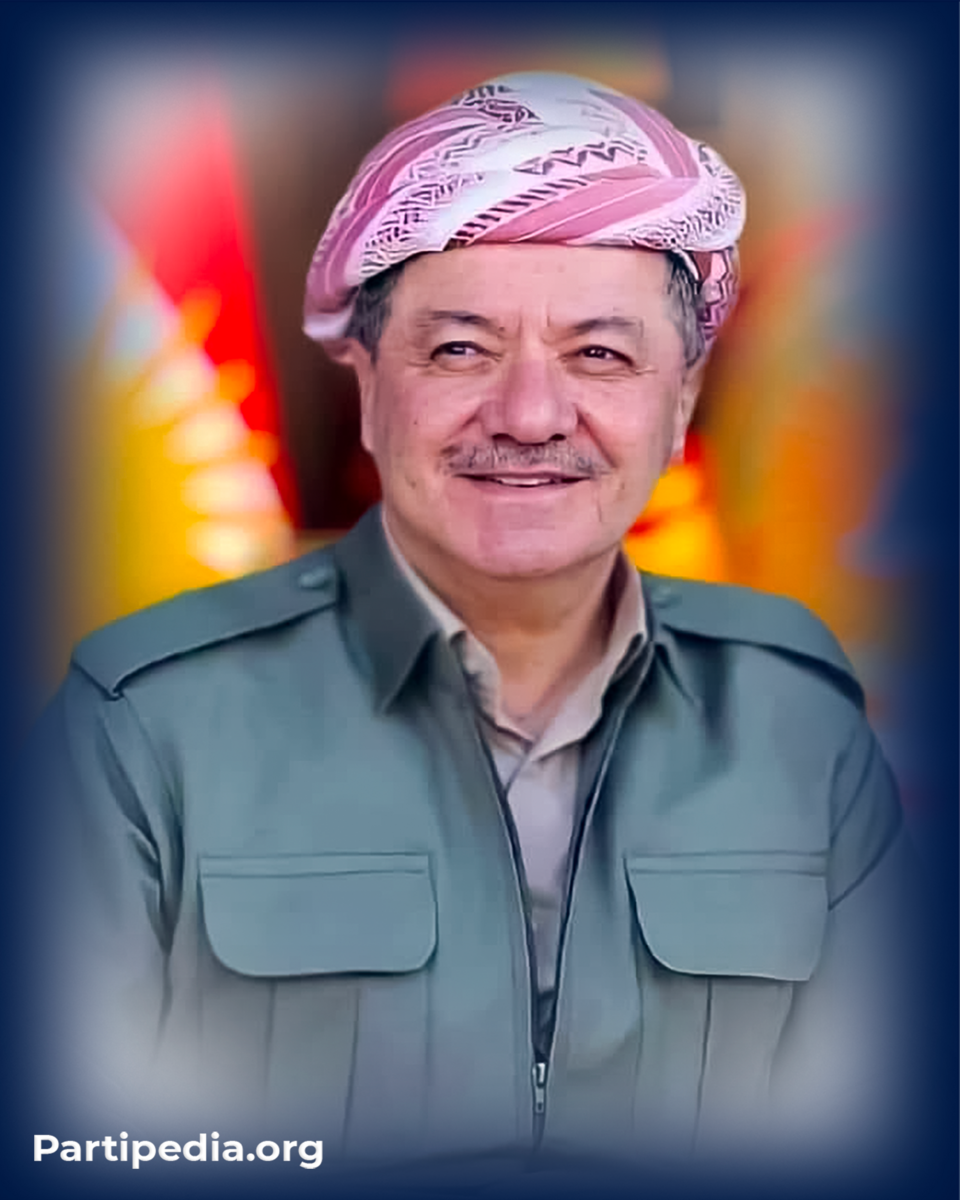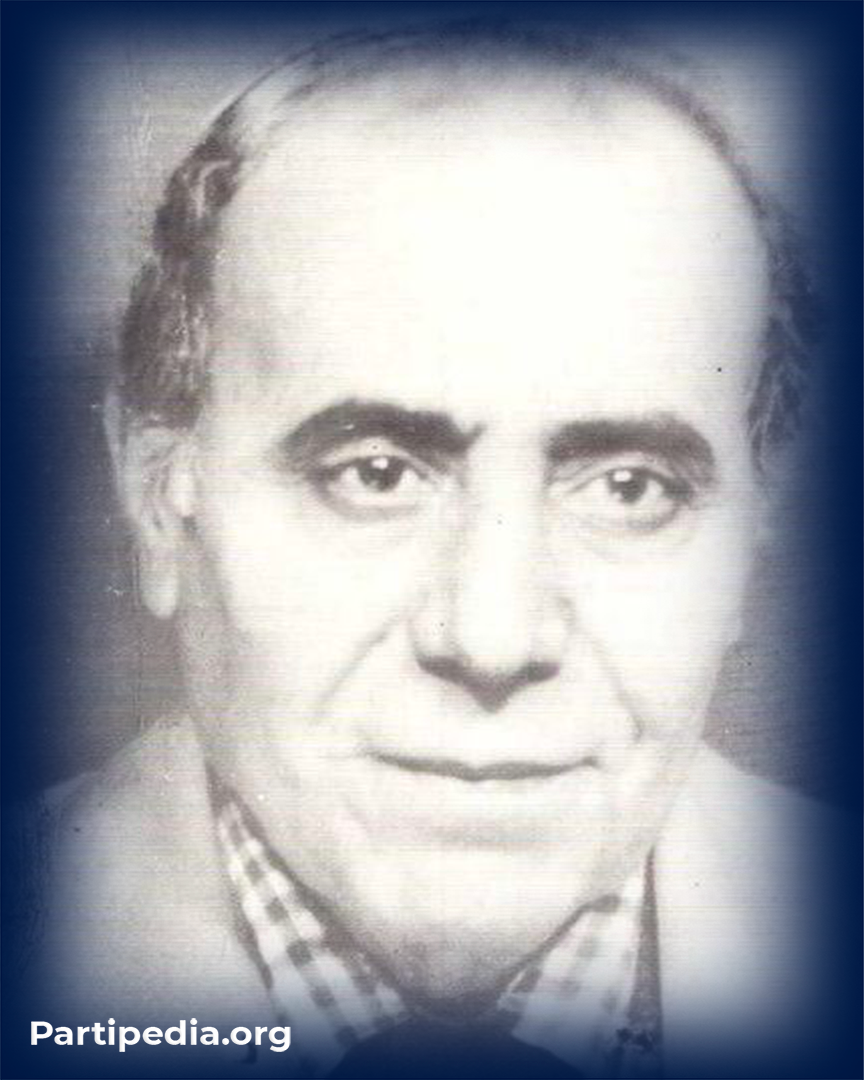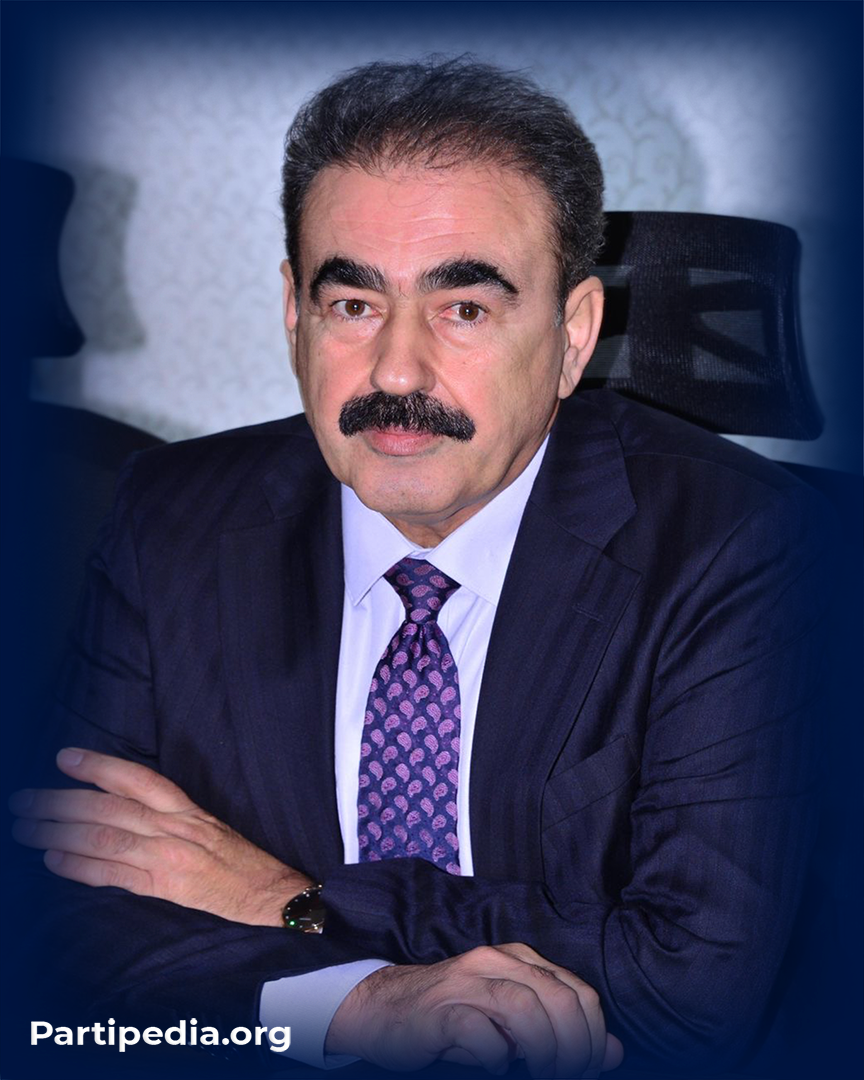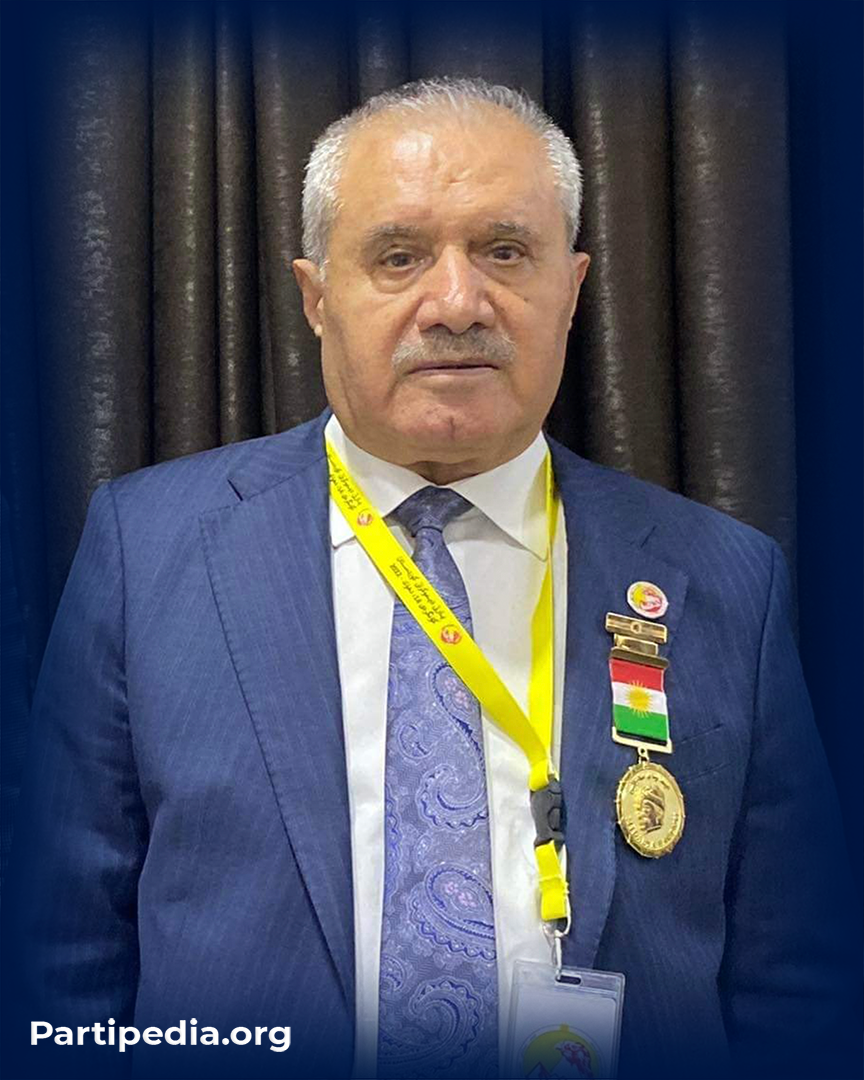Biography
Karim Salam Taha, also known as Mullazm Sayed Karim-Mullazm Sheikh Karim, was born in 1948 in Sulaimani. He hails from a family of esteemed sheikhs belonging to the Qadiri Glazardaey movement in the province of Sulaimani. His educational journey encompassed primary, secondary, and high school studies, all of which were successfully completed in Sulaimani. In 1962, he became a member of the Kurdistan Students Union, marking the beginning of his active involvement in Kurdish affairs. Subsequently, in 1968, he gained admission to the College of Arts at Baghdad University, further expanding his academic pursuits. In 1970, he was granted entry to the Baghdad Police College, courtesy of his affiliation with the Kurdistan Democratic Party. His dedication and hard work culminated in his graduation from the Baghdad Police University in 1973, attaining the rank of second officer. However, the tumultuous events following the collapse of the September Revolution in 1975 led him to seek refuge in Iran as a displaced individual. Eventually, he returned to South Kurdistan, only to be exiled to Ammar from 1975 to 1977 upon his return from the Kingdom of Iran. Tragically, on July 31, 1995, he sustained severe injuries inflicted by PUK forces during the Ziarat front conflict in the province of Erbil. On August 2, 1995, he succumbed to his injuries and passed away at a hospital in Urmia, located in East Kurdistan. His burial took place on August 4, 1995, with President Massoud Barzani in attendance, at Pirmam cemetery in Erbil. The Political Bureau of the Kurdistan Democratic Party (KDP) issued a statement on his martyrdom on the same day. President Massoud Barzani paid his respects at the funeral of the four Khalifas on Saturday, August 5, 1995, held at the mosque in Pirmam village in the province of Erbil. Furthermore, his funeral ceremony was conducted on August 12, 1995, at the Kurdish Cultural Hall in London. Notably, he possessed fluency in Kurdish, Arabic, Swedish, and Persian languages.
Service Record
In 1973, he enlisted in the ranks of the Peshmerga forces. The following year, he assumed the position of commander of the Zmanako Forces. Concurrently in 1974, he held the commanding role of the fourth battalion of the Khabat. During the same year, he underwent an anti-aircraft course in Iran. However, it was in the battle of Garwi Amar Agha in the Ruandz front of Erbil province where he sustained severe injuries. In November 1978, he rejoined the Peshmerga forces of the Kurdish Socialist Party (PASOK) for a second time. By 1979, he had ascended to a leadership position within PASOK. In the same year, he lent his support to the Peshmerga forces of the Kurdistan Democratic Party of Iran by joining the Sardasht front. In 1983, he suffered wounds in the battle of Sinjaqul in Sulaimani province. As a commander, he participated in the battle of Shirmar in Halabja province in 1985. In 1986, he played a key role in securing a peace agreement with the Kurdistan National Union (KNU) as a member of the Kurdish Socialist Party's leadership. In February 1987, he sustained serious injuries due to an airstrike by the Iraqi Air Force during the battle of Karadag in Sulaimani province. On December 13, 1987, he held a meeting with Ali Bapir Watman, a member of the leadership of the Islamic Movement in Iraqi Kurdistan and commander of the Hamza force, at the headquarters of the Kurdish Socialist Party (PASOK) in the village of Goezila in Sulaimani province. The purpose of their meeting was to discuss coordination and joint cooperation. Finally, on June 12, 1988, he signed the Kurdistan Front's program on behalf of the Kurdish Socialist Party (PASOK) at the headquarters of the Iraqi Communist Party in Khawkurk. In 1988, he assumed the role of a commander in the Qaywan Dastan (Sulaimani) and suffered injuries from chemical weapons. Additionally, he participated in the Khawkurk Dastan in the Erbil province during the same year. On September 3-4, 1989, he served as the delegate for the inaugural congress of the Kurdistan Rights Union in Nokan, situated at the border intersection between the Islamic Republic of Iran and the Republic of Iraq. From March 8-10, 1990, he represented the Kurdish Socialist Party (PASOK) in the Kurdistan Front. In 1991, he actively engaged in the defense of Sulaimani and led the battle of Arbat against the Iraqi army, successfully capturing a general. Furthermore, he took part in the second uprising in Sulaimani during the same year. On October 7-10, 1991, he was elected as a member of the Political Bureau of the Kurdistan Democratic Independence Party (PASOK). In 1992, he ran as a candidate for the Kurdistan National Assembly under the United Kurdistan list. Following the reconciliation between the Kurdistan Democratic Independence Party (PASOK), the Kurdistan People's Democratic Party, and the Kurdistan Socialist Party, he assumed membership in the Central Committee of the Kurdistan Unity Party (First Congress). In the same year, he was appointed as the head of the military department of the Kurdistan Unity Party. In 1993, he became a member of the Political Bureau of the Kurdistan Democratic Party (KDP) after the fourth unification. From 1993 to 1994, he held the position of Head of Branch Four Committee. On Wednesday, October 6, 1993, in his capacity as a member of the Political Bureau of the Kurdistan Democratic Party (KDP), he received the remains of Presidents Mustafa Barzani (1903-1979) and Idris Barzani (1944-1987) at the Bashmakh border crossing in Sulaimani province. These remains had departed from the Islamic Republic of Iran and were destined for their final resting place in Barzani village, located in Erbil province. In 1995, he assumed the role of commander at the Ziarat front in Erbil. He actively participated in various battles, including the Omar Agha Pass battle in Diyana village of Erbil province in 1974, the Ahmad Barna Battle in 1980, the Saqiz Battle in East Kurdistan against the Iranian Revolutionary Guards in 1980, the Smaquli Battle in Erbil Province in 1983, the Qaywan Dastan battle in Sulaimani Province in 1987, and the Arbati battle in Sulaimani Province in 1991. On July 11, 1995, he assumed the role of counter-attack commander for the PUK forces in Erbil province. In his published works, there is a book titled 'Asian Peninsula' which was published in 1980.
Sources:
-
ئـهرشیفی دهستهی ئینسكلۆپیدیای پارتی دیموكراتی كوردستان، فایلی ژماره FB-٣.
-
ئهمڕۆ تهرمی بارزانی نهمر و ئیدریسی جوانهمهرگ له سلێمانیهوه دهگهنه ههولێر، ڕۆژنامهی برایهتی، ئۆرگانی پارتی دیموكراتی كوردستان ـ یهكگرتوو، ژماره ١٧٦٣، ههولێر، پێنجشهمه، ٧ تشرینی یهكهمی ١٩٩٣ز، ل ل ١ ـ ٢.
-
كۆنگره، دهرئهنجامهكانی ههڵبژاردنی كۆمیتهی ناوهندیی پارتیمان ڕادهگهینێت، ڕۆژنامهی برایهتی، ئۆرگانی پارتی دیموكراتی كوردستان ـ یهكگرتوو، ژماره ١٧٢٩، ههولێر، ههینی، ٢٧ ئابی ١٩٩٣ز، ل ١.
-
هێژا مسعود بارزانی له پرسهی شههید سەید کەریم ئاماده دهبێت، ڕۆژنامهی برایهتی، ئۆرگانی پارتی دیموكراتی كوردستان، ژماره ٢١٣٣ و ٢١٣٤، دووشهمه، ٧ ئابی ١٩٩٥ز، ل ٢.
-
له ههموولاوه .. بروسكهی ماتهمینی بۆ شههیدی شهرعیهت سهید كهریم، ڕۆژنامهی برایهتی، ئۆرگانی پارتی دیموكراتی كوردستان، ژماره ٢١٣٣ و ٢١٣٤، دووشهمه، ٧ ئابی ١٩٩٥ز، ل ٢.
-
جهلالییهكان ڕێ له هاووڵاتیان دهگرن و ناهێڵن بهشداری پرسهی شههید ملازم کەریم بكهن، ڕۆژنامهی برایهتی، ئۆرگانی پارتی دیموكراتی كوردستان، ژماره ٢١٣٣ و ٢١٣٤، دووشهمه، ٧ ئابی ١٩٩٥ز، ل ٢.
-
نوێنهرانی لایهنه كوردستانی و عێراقیهكان و كۆڕ و كۆمهڵانی خهڵك بهشداری پرسهی شههیدی فهرمانده كاكه مولازم سەید کەریم دهكهن، ڕۆژنامهی برایهتی، ئۆرگانی پارتی دیموكراتی كوردستان، ژماره ٢١٣٣ و ٢١٣٤، دووشهمه، ٧ ئابی ١٩٩٥ز، ل ٢.
-
پهسهنامهی بزووتنهوهی ئیسلامی كوردستان، ڕۆژنامهی برایهتی، ئۆرگانی پارتی دیموكراتی كوردستان، ژماره ٢١٣٣ و ٢١٣٤، دووشهمه، ٧ ئابی ١٩٩٥ز، ل ٢.
-
پرسهنامهی مهكتهبی سیاسی پارتی دیموكراتی كورد له سوریا، ڕۆژنامهی برایهتی، ئۆرگانی پارتی دیموكراتی كوردستان، ژماره ٢١٣٣ و ٢١٣٤، دووشهمه، ٧ ئابی ١٩٩٥ز، ل ٢.
-
سەید کەریم سەلام ئهندامی مهكتهبی سیاسی پارتی دیموكراتی كوردستان، ڕۆژنامهی برایهتی، ئۆرگانی پارتی دیموكراتی كوردستان، ژماره ٢١٣٣ و ٢١٣٤، دووشهمه، ٧ ئابی ١٩٩٥ز، ل ٣.
-
تهرمی پیرۆزی شههیدی شهرعیهت سەید کەریم دهگاتهوه كوردستان، ڕۆژنامهی برایهتی، ئۆرگانی پارتی دیموكراتی كوردستان، ژماره ٢١٣٣ و ٢١٣٤، دووشهمه، ٧ ئابی ١٩٩٥ز، ل ل ٣، ١٧.
-
ئهوهی روویدا ... تاكتیك بوو یان شكستی ڕاستهقینه؟، ڕۆژنامهی برایهتی، ئۆرگانی پارتی دیموكراتی كوردستان، ژماره ٢١٣٣ و ٢١٣٤، دووشهمه، ٧ ئابی ١٩٩٥ز، ل ١١.
-
كاكه سەید کەریم قارهمانی داستانی زیارهت بوو، ڕۆژنامهی برایهتی، ئۆرگانی پارتی دیموكراتی كوردستان، ژماره ٢١٣٣ و ٢١٣٤، دووشهمه، ٧ ئابی ١٩٩٥ز، ل ١.
-
فهیسهڵ ڕەسول خۆشناو، بایۆگرافیای ئهفسهرانی كورد، بهشی دووهم، (تهران ـ چاپخانهی ڕۆژههڵات ـ ٢٠٢٠ز)، ل ٢٦٠ ـ ٢٦١.
-
ئهحمهد بانیخێڵانی، بیرهوهرییهكانم، (ئستكهوڵم ـ ١٩٩٧ز)، ل ل ٤٢١، ٤٨٠، ٥٤٢.
-
روود هوف و میخێل لیزنبێرگ و پیتهر موولهر، ههڵبژاردنهكانی كوردستانی عێراق ١٩ی مایسی ١٩٩٢ ئهزمونێكی دیموكراسی یانه، وهرگێڕانی صفوت رشید صدقی، (سلێمانی ـ لێژنهی سلێمانی ڕێكخراوی مافی مرۆڤ له كوردستان و كۆمهڵهی دۆستایهتی هۆلهنده و كوردستان ـ ١٩٩٤ز)، ل ل ٣٠، ٨٧، ٩١ ـ ٩٢.
-
پێنجهمین ساڵڕۆژی بهرهی كوردستانی، ڕۆژنامهی برایهتی، ئۆرگانی پارتی دیموكراتی كوردستان، ژماره ١٦٦٤، ههولێر، سێشهمه، ٨ حوزهیرانی ١٩٩٣ز، ل ٣.
-
سلێمان مستهفا حهسهن، كورد و یهكهم ئهزمون، (ههولێر ـ چاپخانهی كارۆ ـ ٢٠١٧ز)، ل ل ٨١، ١٠١، ٢٧٨.
-
ئهكرهمی ساڵحی ڕهشه، شاری سلێمانی، بهرگی پێنجهم، (سلێمانی ـ چاپخانهی ڕهههند ـ ٢٠١٨ز)، ل ل ٤٣٠ ـ ٤٣٢.
-
البارزاني یتلقی العدید من برقیات التعزیة باستشهاد البطل الملازم كریم، جریدة خهبات، لسان حال الحزب الدیمقراطي الكوردستاني ـ الموحد، العدد ٧٧١، الثلاثاء، ٢٢ آب ١٩٩٥م، ص ٣.
-
برایهتی داستانی گهورهی سهركهوتنهكانمان تۆمار دهكات، ڕۆژنامهی برایهتی، ئۆرگانی پارتی دیموكراتی كوردستان ـ یهكگرتوو، ژماره ٢١٣١ و ٢١٣٢، هاوینهههواری پیرمام، پێنجشهمه، ٢٠ تهموزی ١٩٩٥ز، ل ٨.
-
بهیانی مهكتهبی سیاسی پارتی به بۆنهی شههید بوونی تێكۆشهری نهتهوه پهروهری بهرزی كورد، سەید کەریم سەلام ئهندامی مهكتهبی سیاسی پارتی دیموكراتی كوردستان، ڕۆژنامهی برایهتی، ئۆرگانی پارتی دیموكراتی كوردستان ـ یهكگرتوو، ژماره ٢١٣٣ و ٢١٣٤، ههولێر، دووشهمه، ٧ ئابی ١٩٩٥ز، ل ٣.
-
اجتماع القیادة السیاسیة للجبهة الكردستانیة، جریدة گهل (الشعب)، لسان حال حزب الشعب الدیمقراطي الكوردستاني، العدد ٣٧، السنة السابعة، أوائل آذار ١٩٩٠م، ص ص ١، ١٤.
-
بیان المكتب السیاسي لحزبنا الدیمقراطي الكوردستاني بمناسبة استشهاد المناضل القومي الخالد ملازم كریم، جریدة خهبات، لسان حال الحزب الدیمقراطي الكوردستاني، العدد ٧٧١، مصیف صلاح الدین، الثلاثاء، ٢٢ آب ١٩٩٥م، ص ٤.
-
جهعفهر مستهفا مهعروف، گوڵبژێرێك له یاداشتهكانم، بهرگی دووهم، (ههولێر ـ ١٩٩٩ز)، ل ١٣١.
-
حبیب محمد كریم، تأریخ الحزب الدیمقراطي الكوردستاني ـ العراق (في محطات رئیسیة) ١٩٤٦ ـ ١٩٩٣، (دهوك ـ مطبعة خهبات ـ ١٩٩٨م)، ص ١٨٣.
-
حهمهی فهرهج ههڵهبجهیی، له شنروێ وه بۆ ستكهۆڵم، چاپی سێیهم، (سلێمانی ـ چاپخانهی كارۆ ـ ٢٠١٥ز)، ل ل ٢٨٢ ـ ٢٨٣، ٣٩٢.
-
حوار مع (هاوبیر ملازم كریم) عضو المكتب الساسي ل(پاسۆك)، جریدة نهورۆز، جریدة حزب الأستقلال الدیمقراطي الكردستاني (پاسۆك) فرع دهۆك، العدد ٦، السنة الأولی، آیار ١٩٩٢م، ص ص ٨ ـ ٩.
-
محهمهد حاجی مهحمود، ڕۆژ ژمێری پێشمهرگهیهك ١٩٧٦ ـ ١٩٩٦، بهرگی چوارهم، (سلێمانی ـ چاپخانهی دیلان ـ ٢٠٠٩ز)، ل ٦٩٨.
-
ڕێكار ئهحمهد، یهكگرتن و ههڵوهشانهوه، (ههولێر ـ چاپخانهی بهههست ـ ٢٠١٦ز)، ل ل ٦٣، ٧٨.
-
ساسان دهروێش، شههید مولازم کەریم ڕۆڵهیهكی بهوهفا و به ئهمهكی ڕێبازی كوردایهتی، ڕۆژنامهی خهبات، ئۆرگانی پارتی دیموكراتی كوردستان، ژماره ٤٨٥١، ههولێر، دووشهمه، ٣ ئابی ٢٠١٥ز، ل ٥.
-
سهركهوت سلێمان و بهختیار غهفور باڵهكی، یهكێتی مافپهروهرانی كوردستان له ١٥ ساڵی خهباتیدا (١٩٨٩ ـ ٢٠٠٤)، (ههولێر ـ یهكێتی مافپهروهرانی كوردستان ـ چاپخانهی مناره ـ ٢٠٠٤ز)، ل ل ١٠، ٢٤.
-
شهریف وهرزێر و محهمهد زهرزی، جهولهیهك به قوڵایی خاكی نیشتماندا، چاپی دووهم، (بێ شوێن ـ ٢٠١٩ز)، ل ل ١٤١ ـ ١٤٢.
-
شهعبان عهلی شهعبان، ههندێك زانیاری سیاسی و مێژوویی، (ههولێر ـ چاپخانهی ڕۆژههڵات ـ ٢٠١٣ز)، ل ١٢٤.
-
فازیل ڕەئووف، بهرهو خۆر، بهرگی یهكهم، (ههولێر ـ چاپخانهی وهزارهتی ڕۆشنبیری ـ ٢٠٠١ز)، ل ١٨٧.
-
كاك مولازم کەریم سەلام، گۆڤاری خوێندكاری كورد، ئۆرگانی ڕێكخراوی خوێندكارانی سۆسیالیستی كورد له ئهوروپا (سۆكسه)، ژماره ٢١، دهزگای چاپهمهنی شههید فهرهاد، ١٩٩٥ز، ل ٦٥.
-
مجلس فاتحة في لندن علی روح الشهید سید كریم، جریدة خهبات، لسان حال الحزب الدیمقراطي الكوردستاني ـ الموحد، العدد ٧٧١، الثلاثاء، ٢٢ آب ١٩٩٥م، ص ٢.
-
محهمهد مهلا قادر، خهباتنامه كورته مێژووی پارتی و كولتووری بارزانی نهمر، چاپی دووهم، (ههولێر ـ دهزگای چاپ و بڵاوكردنهوهی ئاراس ـ ٢٠٠٧ز)، ل ٩٧.
-
ههرگیز .. ئۆتۆنۆمی له ئاستی قوربانیدانی گهلهكهماندا نیه، گۆڤاری سهربهخۆیی، ئۆرگانی ناوهندی پارتی سهربهخۆیی دیموكراتی كوردستان (پاسۆك)، ژماره ١١، شوباتی ١٩٩٢ز، ل ١.
-
ههڵۆ، كۆستی گرانم ... كاك مولازم کەریم سەلام، گۆڤاری خوێندكاری كورد، ئۆرگانی ڕێكخراوی خوێندكارانی سۆسیالیستی كورد له ئهوروپا (سۆكسه)، ژماره ٢٤ و ٢٥، بهرلین، دهزگای چاپهمهنی شههید فهرهاد، ١٩٩٧ز، ل ل ٥٧ ـ ٦٠.
-
حهمهی ئامۆزا، گوڵی چیا، (ههولێر ـ چاپخانهی زانكۆی سهڵاحهدین ـ ٢٠٠٠ز)، ل ل ٦، ٩، ١١، ١٤، ١٩ ـ ٢٢.
-
هێژا مسعود بارزانی : كاكه سەید کەریم قارهمانی داستانی زیارهت بوو .. بهڵێن بێت خوێنی بزر نهبێت، ڕۆژنامهی برایهتی، ئۆرگانی پارتی دیموكراتی كوردستان ـ یهكگرتوو، ژماره ٢١٣٣ و ٢١٣٤، دووشهمه، ٧ ئابی ١٩٩٥ز، ل ١.




